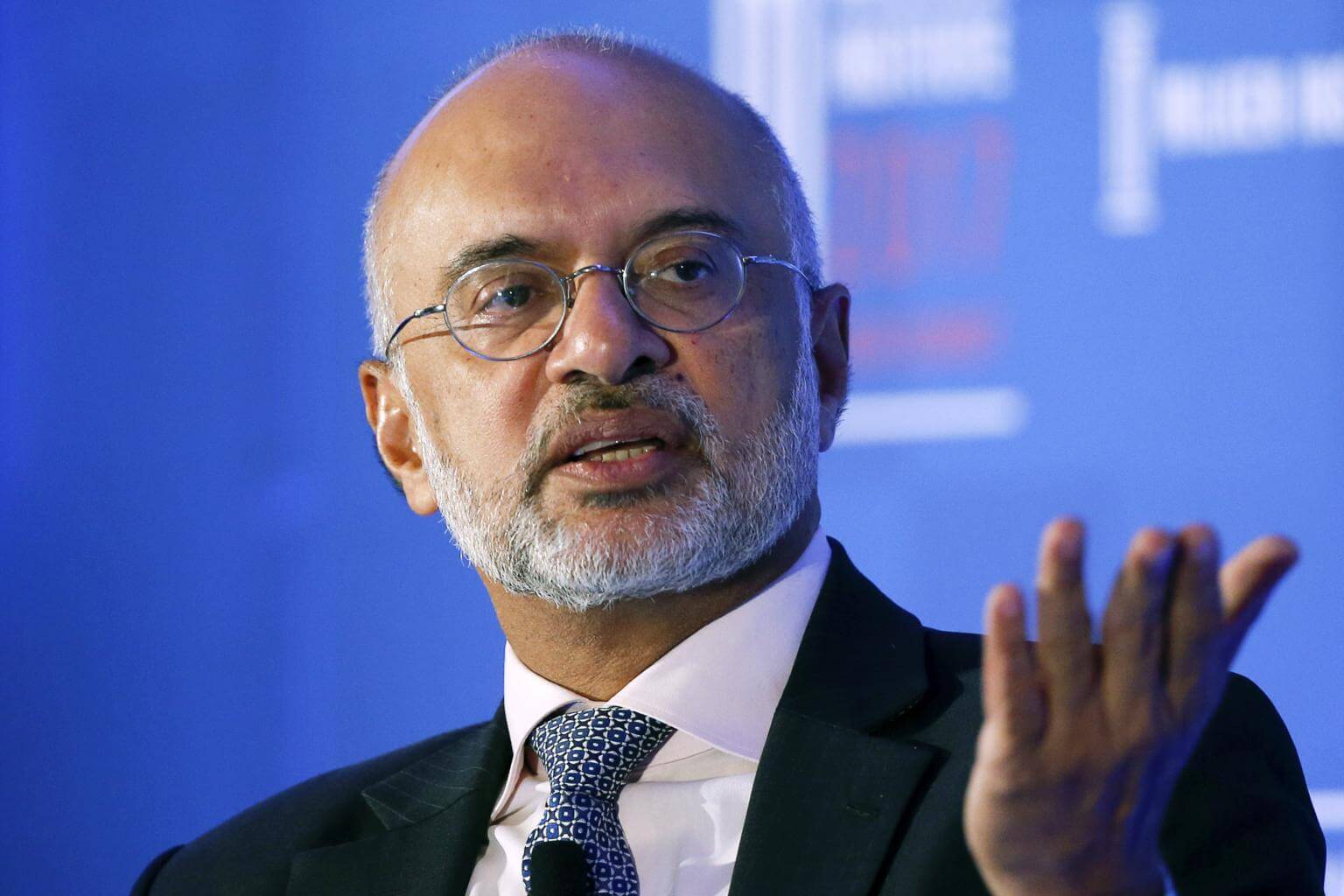Technology could worsen inequality as more workers displaced: DBS Group boss Piyush Gupta
Sign up now: Get ST's newsletters delivered to your inbox

Piyush Gupta, chief executive officer of DBS Group Holdings Ltd., speaks during the Milken Institute Asia Summit in Singapore, on Sept 14, 2017.
PHOTO: BLOOMBERG
SINGAPORE - Technology has the potential to create a "useless" class of workers displaced by artificial intelligence and automation, even as wealth and power is concentrated in the hands of a few, said DBS Group Holdings chief executive Piyush Gupta.
These seismic shifts are resulting in mounting uncertainty about the future and causing anger and alarm. All this has contributed to the recent pushbacks against globalisation, he added.
Mr Gupta was on a panel at the Milken Institute Asia Summit, held on Thursday and Friday (Sept 14 and 15) at the Four Seasons Hotel.
The event featured a slew of high-profile speakers including Nobel Peace Prize laureate and former United States vice-president Al Gore, who talked about the next step in the movement to combat climate change as well as prospects for the renewable energy sector.
Mr Gupta, who was on a panel discussing major trends shaping the world in the coming decades, said that the populist revolt sweeping across the developed world is ostensibly a reaction to globalisation but also points to deeper issues.
"The impact of technology is vastly underestimated," he noted.
Technological advances will mean fewer jobs. This, combined with the rise of "Big Tech" - giant technology companies - will likely result in resources, wealth and power being concentrated in fewer and fewer hands.
"We are hurtling down a path...of creating a 'useless' class, where there previously was a working class...That's the cry of anger, concern and alarm that we're hearing."
There will be "fewer traditional jobs as we know it", said Mr Gupta. Instead of large corporations employing many workers, he expects a movement back towards small-scale enterprises driven by entrepreneurship and self-sustaining employment.
Jobs in banking, for instance, are already shrinking owing to technological displacement - including in his organisation, Mr Gupta said. "Convenience and functionality will improve for consumers but it will not be through job creation."
In response, fellow panellists Joaquim Levy, the managing director and group chief financial officer at the World Bank Group, said the impact of technology can be difficult to predict.
"When ATMs were invented people thought tellers would disappear," he noted. Instead, their roles have changed and they now advise customers in addition to dispensing cash.
"The types of jobs will change but this doesn't mean finance will shrink," added Mr Levy.


